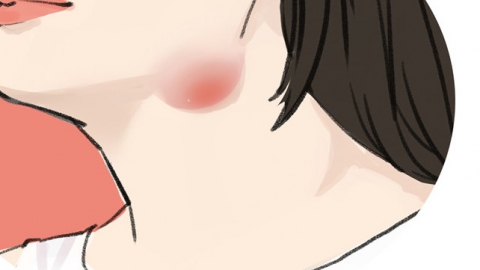Why does lymph node swelling cause a fat neck?
Generally, swollen lymph nodes causing a fat neck may be due to reasons such as lymph node congestion and edema, inflammatory infiltration of surrounding tissues, reactive lymph node hyperplasia, lymphadenitis, or tuberculous lymphadenitis. If discomfort symptoms occur, it is recommended to seek timely treatment at a regular hospital. Detailed explanations are as follows:
1. Lymph Node Congestion and Edema
Pathogen stimulation or inflammatory reactions can cause vasodilation within the lymph nodes, increasing fluid exudation, leading to lymph node congestion, edema, and enlargement, which makes the neck appear fatter. Pay attention to rest, avoid pressing the swollen area, apply local cold compresses to reduce congestion and edema, drink plenty of water to promote inflammation metabolism.
2. Inflammatory Infiltration of Surrounding Tissues
Swollen lymph nodes often accompany inflammation of surrounding tissues. Inflammation can cause congestion and edema in the surrounding tissues, which together with enlarged lymph nodes increase the volume of the neck area. Treat the primary inflammation promptly to prevent its spread. Elevate the head appropriately during rest to reduce local pressure and alleviate tissue swelling.

3. Reactive Lymph Node Hyperplasia
Long-term chronic stimulation can cause cellular proliferation within the lymph nodes, leading to enlarged lymph nodes and subsequently making the neck appear fatter. Avoid exposure to irritating factors, such as quitting smoking, limiting alcohol consumption, and reducing neck friction. Regularly monitor changes in lymph node size; seek medical attention promptly if significant hyperplasia occurs.
4. Lymphadenitis
Infections caused by bacteria, viruses, etc., can trigger lymphadenitis, leading to swollen and painful lymph nodes. When the inflammation is severe, surrounding tissues may also swell, causing the neck to appear fatter. Use anti-infective medications under a doctor's guidance, such as Cefaclor Capsules, Amoxicillin Clavulanate Potassium Tablets, Ribavirin Granules, etc., to control inflammation progression.
5. Tuberculous Lymphadenitis
Infection with Mycobacterium tuberculosis can lead to swollen lymph nodes, often accompanied by adhesion and ulceration. The swollen lymph nodes and surrounding diseased tissues can make the neck appear fatter. Anti-tuberculosis treatment should be conducted under a doctor's supervision, using medications such as Isoniazid Tablets, Rifampin Capsules, Pyrazinamide Tablets, etc., following the principles of early initiation, combination therapy, and regular medication.
In daily life, maintain neck cleanliness to prevent infections; eat a light diet avoiding spicy and irritating foods; maintain regular作息 (作息 translates as作息 here, but no direct English equivalent—could be rest patterns or作息 habits); enhance immune function; seek medical attention promptly if swollen lymph nodes persist or worsen to identify the underlying cause and receive appropriate treatment.









